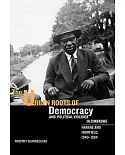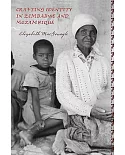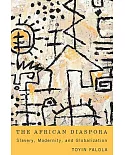The Anglo-Egyptian re-conquest of Sudan - Churchill's 'River War' - has been well chronicled from the British point of view, but we still know little about its front line troops, the Sudanese
soldiers of the Egyptian Army. Making use of unpublished primary sources and published material located in the United Kingdom and Sudan, Slaves of Fortune provides an historiographic
correction. It argues that nineteenth-century Sudanese slave soldiers were social beings and historical actors, shaping both European and African destinies, just as their own lives were being
transformed by imperial forces. The book explores the complex nature of Sudanese soldier identity and social condition, daily life and conditions of service, and the unique character and scope
of interactions between Sudanese soldiers and their British comrades. It goes on to highlight both the decisive military role played by Sudanese troops throughout the war, and the many
non-combat roles these men occupied during the campaign, as translators, military recruiters, and ethnic ambassadors. It concludes with an epilogue detailing the 1900 Sudanese mutiny at
Omdurman. Ronald M. Lamothe is Visiting Lecturer at the University of Massachusetts Amherst





















